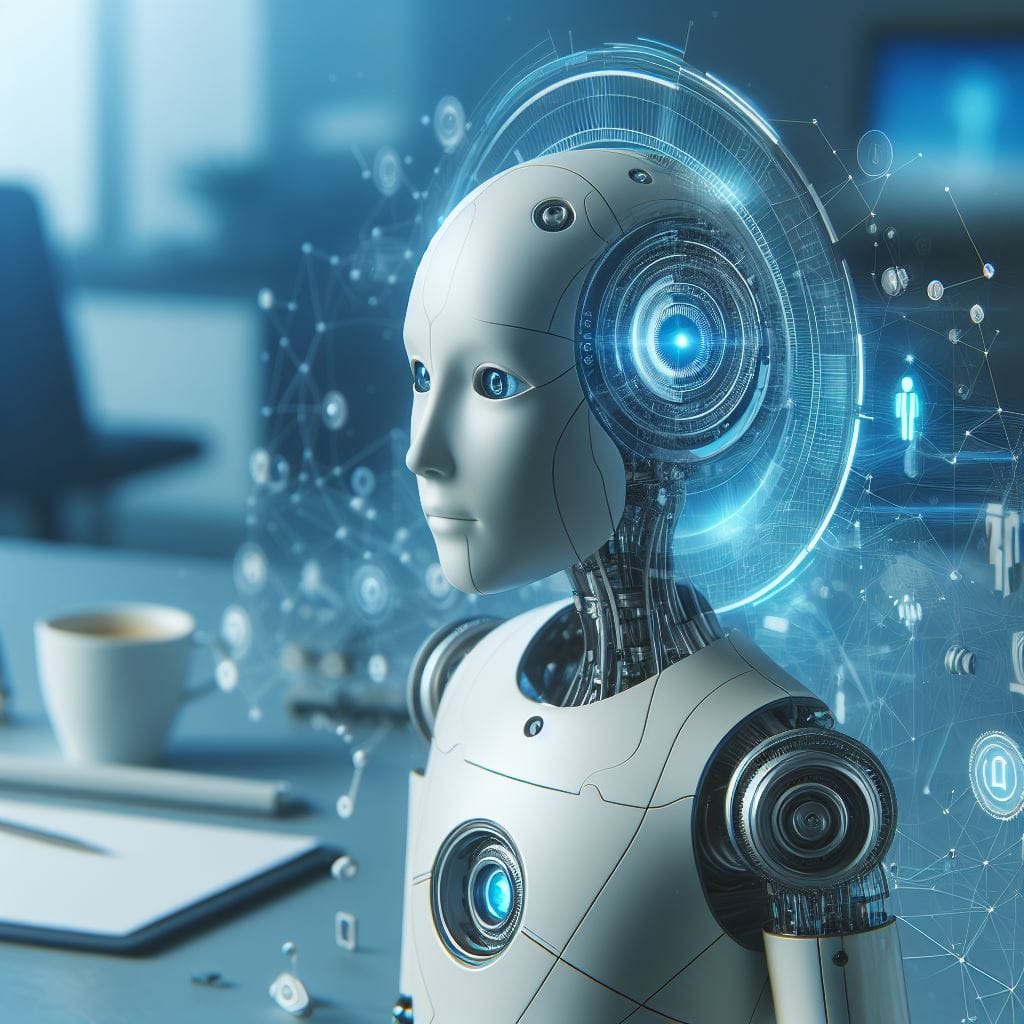AI Revolutionizes E-commerce Sales

Businesses are enhancing online shopping experiences and optimize operations, AI emerges as a pivotal tech behind their transformation. From personalizing customer interactions to streamlining inventory management, AI’s role in e-commerce is both transformative and expansive. Let’s dive into how AI is revolutionizing e-commerce sales, making shopping smarter, faster, and more user-friendly. 🚀
Understanding AI in E-commerce
AI in e-commerce refers to the use of machine learning algorithms, natural language processing, and robotics to improve online business operations and customer experiences. These technologies enable e-commerce platforms to analyze vast amounts of data from user interactions, predicting shopping trends and consumer needs with remarkable accuracy. As a result, businesses can offer more personalized shopping experiences and enhance operational efficiency.
The integration of AI tools not only simplifies the analysis of consumer behavior but also automates routine tasks such as customer support and product recommendations. This automation frees up valuable resources, allowing companies to focus on innovation and growth. Moreover, AI-powered chatbots and virtual assistants have become commonplace, providing 24/7 customer service and helping shoppers make informed decisions.
Lastly, AI is instrumental in optimizing supply chains and inventory management in e-commerce. Predictive analytics help forecast demand, manage stock levels, and reduce waste. This level of efficiency is crucial for maintaining competitiveness in the fast-paced e-commerce sector, ensuring that businesses can respond swiftly to changing market dynamics and customer preferences.

Key AI Technologies Boosting Sales
One of the standout AI technologies in e-commerce is machine learning, which powers recommendation engines across many online platforms. These engines analyze previous purchases and browsing behaviors to suggest products that users are likely to buy, significantly increasing cross-selling and upselling opportunities. For instance, Amazon reported that 35% of its revenue comes from its recommendation engine.
Another vital technology is AI-powered visual search, which allows customers to search for products using images instead of words. This not only enhances the user experience but also boosts sales by making it easier for shoppers to find and purchase products. Pinterest’s Lens feature, for example, has successfully bridged the gap between visual inspiration and online shopping, leading to higher conversion rates.
Voice search and voice-activated devices are also transforming e-commerce. With the rise of smart speakers like Amazon Echo and Google Home, voice shopping is projected to hit $40 billion in sales by 2022. This hands-free shopping experience is not only convenient but also tailored to individual preferences and past shopping behavior, thanks to AI’s learning capabilities.
AI on Consumer Behavior
AI in e-commerce has significantly altered consumer behavior by setting new expectations for personalized shopping experiences. Consumers now anticipate recommendations that are aligned with their preferences and previous shopping history. This level of personalization enhances customer satisfaction and loyalty, as shoppers feel understood and valued by their favorite brands.
Moreover, AI-driven analytics help retailers gain deep insights into consumer behavior, enabling them to craft more effective marketing strategies. By understanding what, how, and when people buy, businesses can create targeted advertisements and promotions that speak directly to the consumer’s needs and desires, thereby increasing engagement and sales.
The convenience introduced by AI technologies, such as one-click purchases and voice-activated shopping, has also led to an increase in impulse buying. The ease with which transactions are completed means that consumers are more likely to make spontaneous purchases, boosting overall sales volumes for e-commerce businesses.

Future Trends: AI in E-commerce
Looking ahead, AI in e-commerce is only set to deepen. Augmented Reality (AR) and Virtual Reality (VR) are will transform the online shopping experience by allowing consumers to visualize products in a real-world context before making a purchase. This could drastically reduce return rates and increase customer satisfaction.
Another trend is the adoption of AI for ethical and sustainable shopping. AI can help brands track and verify the sustainability of their products and supply chains, appealing to the growing demographic of environmentally conscious consumers. Additionally, as AI technology advances, we can expect even more personalized shopping experiences, with AI predicting needs before the consumer even recognizes them.
Lastly, blockchain combined with AI will enhance transparency and trust in e-commerce transactions. This technology duo could revolutionize payment systems, ensure product authenticity, and even automate contracts and warranties, creating a safer and more reliable environment for online shopping.
As we stand on the brink of a new era in e-commerce, it’s clear that AI is not just an optional tool but a fundamental component of modern retail strategies. With its ability to understand and predict consumer behavior, automate and optimize operations, and create engaging, personalized shopping experiences, AI is undeniably revolutionizing e-commerce sales. Businesses that use AI capabilities will be well-positioned to lead in the competitive and ever-evolving digital marketplace. The future of e-commerce is here, and it is intelligently automated. 🌐🛒




